

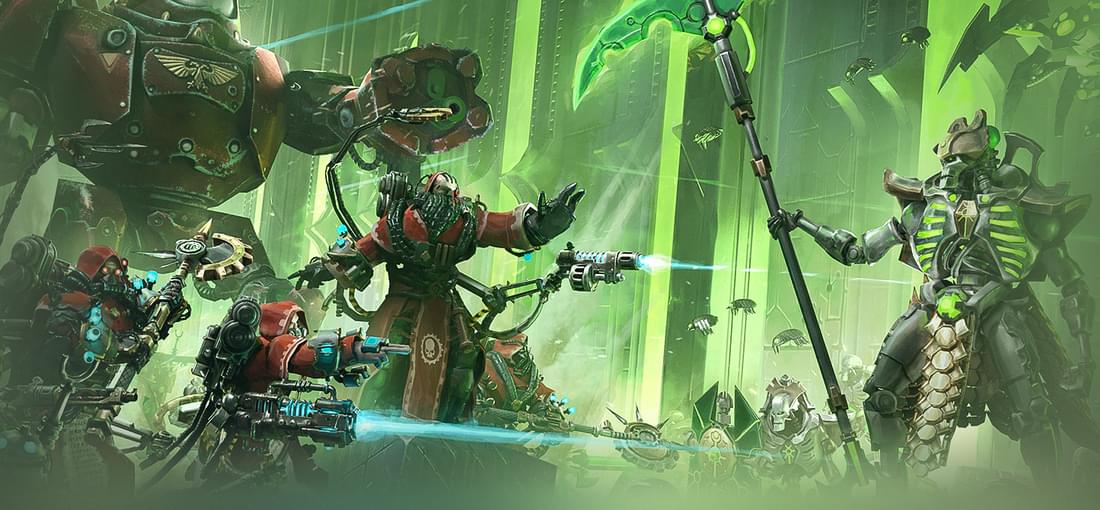
In Warhammer 40k Mechanicus you are the Adeptus Mechanicus. The Adeptus tech-priests are a collection of optical sensors, bionics and implants stitched on the biological remains of a human. On planet Silva Tenebris, you find long forgotten Necron tombs. Necrons are a dead race, and can be described as zombie terminators. By plundering their tombs for ancient technology you awaken the Necrons. The sound and music are fantastic. Similarly immersive are the dialogs. Tech-priests say they register emotions, before deciding to contain it, and the destruction of ancient xeno culture is justified by biblical one-liners about the dangers of heretics. Against this background, it is unfortunate that gameplay is mediocre. In about 30-50 missions you explore chambers. These contain fights, text-driven events or the choose between glyphs (Necron icons). Event text does not provide any clue to the outcome. You can strip crystal, to upgrade tech-priests, from a decorated wall or lose health because the wall crumbles. You can bypass events by save-scumming or look them up online. Or you accept the cruel nature of the WH40k universe, and run into the problem of awakening. Awakening increases Necron strength during missions and fills up a global campaign meter. The campaign ends when the meter is full, which can easily happen before seeing half of the missions. The fights are a squad-based tactical encounter with a few Necrons. Cognition (hero) points are used to make extra moves or deploy very powerful weaponry. Understanding this mechanism is fun and make you do crazy things, like clearing half the enemies on the first turn with only one tech-priest. Once understood, Mechanicus becomes far too easy on the default difficulty. I changed the campaign settings to increased awakening to add more Necrons AND disable the awakening campaign meter. This was a choice between immersion and gameplay. "If only I could contain my emotional distress I felt by doing so, like a tech-priest?"

A game done in 15 mins cannot receive more than 3 stars, unless it is pure magic. Samorost is not magical, it is cute and funny. You can let your kids play this game. They will either be fascinated by the idea of clicking the mouse on cute things, or when past the age of 9, ask why you want to play this?!
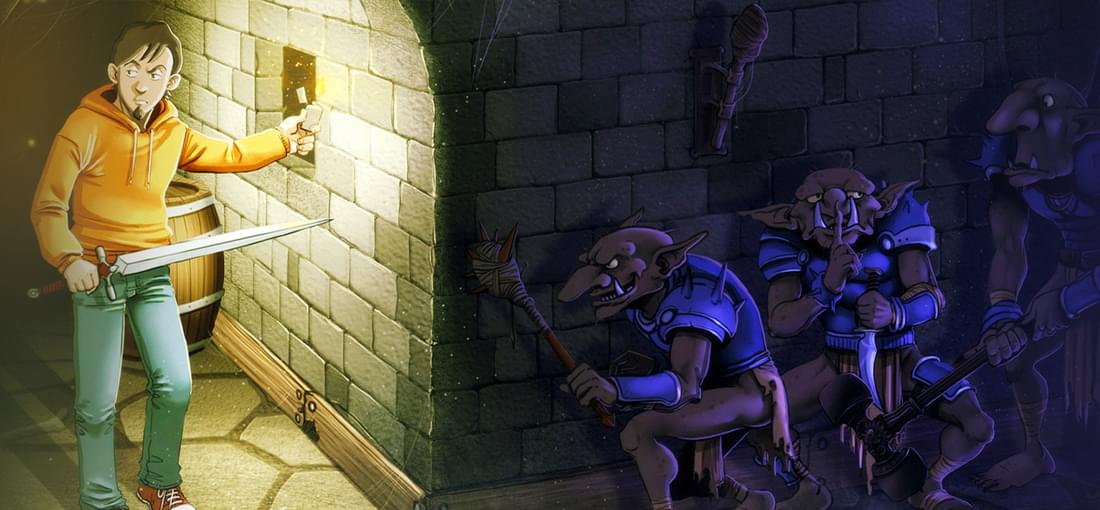
Unepic is an RPG with the complexity of old school D&D hack & slash adventure, and the humour of a high school nerd. Yet, it works, mainly because the game does not take itself seriously. You play the unlikely (un-epic) hero, who, by using references to movies, (computer) games and books, confuses the “more serious” evil in the game world. It is fun to hear the evil possessing spirit stumble over words of friendship before realizing the plan was the outright murder the player. In terms of gameplay, you adventure through a linear and long dungeon, hack in 2D monsters and fight boss monsters using magic and potions. Sharp swords do additional damage to living creatures, bludgeoning maces hit skeletons hard, and frost magic freezes fire elementals. You gain levels with experience, gain skill points each level, and add those to skills to get more proficient (more damage, use higher level gear). You buy spells from gold, starting with a fire bolt, upgrade to improved firebolt and end with advanced firebolt. You make potions from monster remains. Nothing is excitingly new. Yet, the game keeps entertaining. There is little to no frustrating platforming. The variety of places and monsters keep the game fresh and you, as player, interesting in what is next? Yokes may lack sophistication and can be straight up vulgar (nerdy sex humour), but it keeps the tone of the game light. My only complains are that the game can be boring if played for too long session, maybe it is even too long for its own good (30+ hours to complete)? And similarly, it does have little replay value.
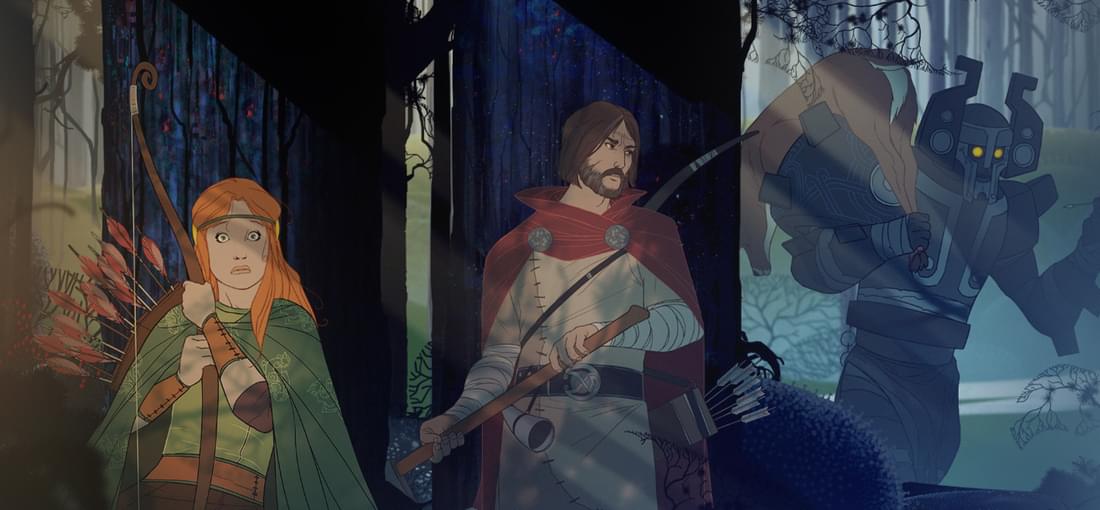
Once the story in The Banner Saga develops, you’ll get involved in a Nordic land inhabited by humans, Varl (giants) and weird Dredge who represent the evil that you face. The music elevates the land to a mystical world. Characters, your heroes, have interesting dialog options and lead a caravan through a dramatic story. It is sad that the many references to a changing world are not visualized on the world map. The character backgrounds and the world’s lore, like the world eating serpent, carry the story. On the other hand, the unnatural Dredges seem a bit out of place. Sometimes characters change personality in extreme and unexpected ways, like the prince that goes from being a child, undertakes heroic actions, and then suddenly behaves like a naïve old grumpy man. The old man and young woman would have fitted better in the story if they would have switch personalities, and Hakon is suddenly a leader of people without any mention that he was on the path of becoming one. I mean, would you not take notice of a very charismatic person? The game is short. The end battle is a complete disaster, as it highlights a severe problem with initiative in the combat system. On the other hand, the concept of health and armor, where you need to consider targeting one or the other, is actually well done. Overall, I enjoyed The Banner Saga mostly for its story and interesting cast of characters (with extreme personalities). The game offers little replayability and the combat system is serviceable, nothing great.
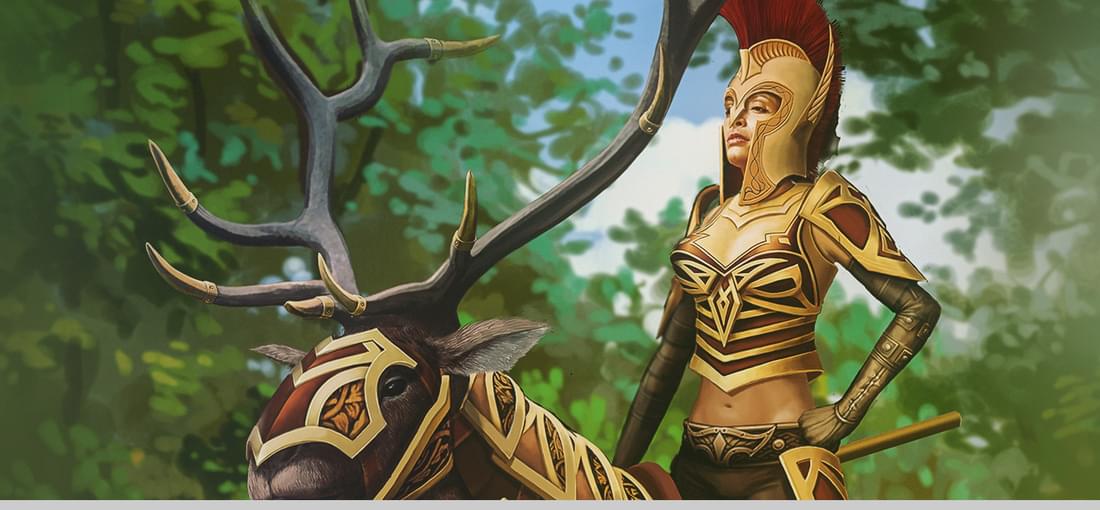
Unlike Fantasy Wars, Elven Legacy is a poor strategy game. I had troubles finishing the main campaign. Maybe the expansion packs are better? I cannot tell, as I had my fill after the main campaign. In contrast to the more engaging and better Fantasy Wars (4 stars), Elven Legacy suffers from controlling overpowered units. Air ships not only have the role of scout but, for no clear reason, have major area of effect spells. An elven archer can take on several enemies, and can even take on enemies in melee. Dragons kill everything. It does not mean the game is easy, by no means, but the amount of damage you can dish out, and most over range, means it becomes a game of dishing out as much damage as possible per turn, not caring how your units are positioned afterwards, as there are no enemies left that can hit back. What is also damaging the experience, is the amount and strength of nuke spells. Area of effect spells, like the ones from air ships, can blast 7 units at once. Most enemy groups are conveniently clustered in 7-hex formations. If you saved your nuke spells you can wipe out boss groups in a single turn to quickly end missions. In comparison, every turn in Fantasy Wars was finding a working balance between crippling opposing units while not leaving weak spots in your own defense. And the end of missions often provided a challenge, where you tried to overcome a strong force with a beaten-up army, and no easy options to bypass with a few spells.
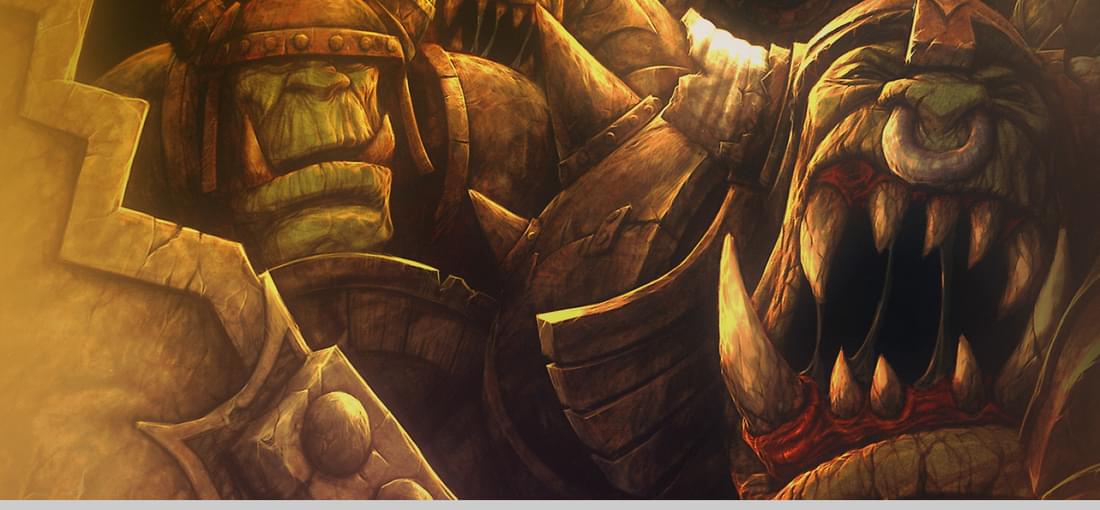
Fantasy Wars is an old-school turn-based strategy game. Fixed maps, ugly time (turn) limit system, slow-paced gameplay and best when playing on hard difficulty. It is slow and hard because you beat a larger and stronger army, including ambushers in hiding, with limited scouting potential and some randomization of adding -1/0/+1 to damage scores. The randomization may seem to be not a big deal, except when you wither down fortified enemies with damage rolls of 1’s and 2’s, and after 5 damage make them break and flee their fortifications. Hence, you can guess Fantasy Wars includes trial and error when exploring the map and engaging enemy forces. It also includes load-spamming to get rid of the randomization or always get +1 damage rolls. Without, I was not able to achieve hard/gold victories. That aside, Fantasy Wars features a good story, great units (brute orcs, charging knights, goblin skirmishers, etc.) and characters (hexers, orc mages with fungus spells, hero berserker, etc.) with interesting skills and sufficient terrain features and well-placed enemies to more than scratch that strategy/tactician itch.
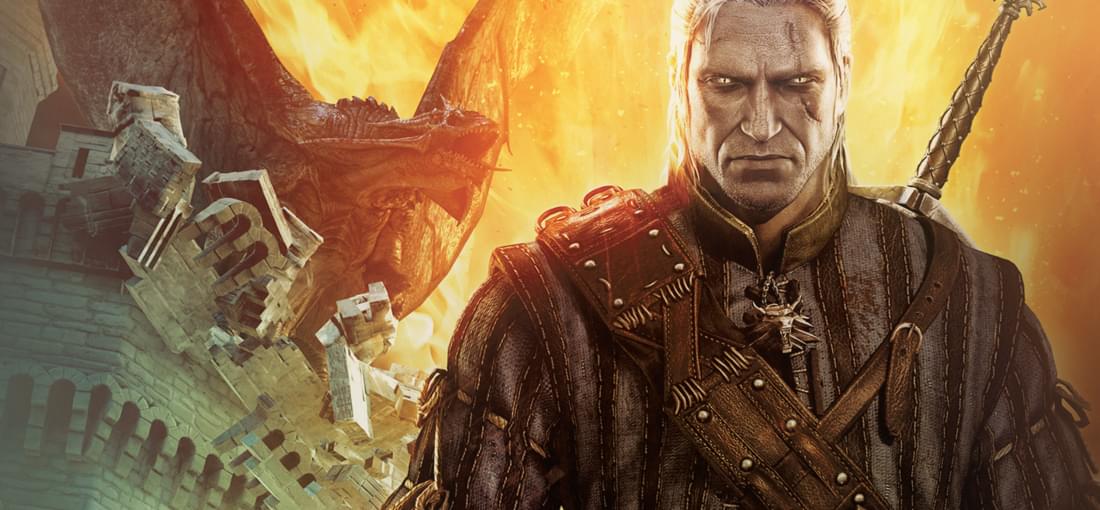
I played The Witcher II with several graphical and quality of life and the Full Combat Rebalance 2 mods. The combat mod was created by a dev who also created combat in The Witcher III. It is supposed to be an upgrade to the original Witcher II combat. My personal feeling towards the system is mediocre at best. You hammer the attack button and start rolling on the floor when too many enemies get you surrounded. Medium difficulty is a laugh, while hard means you die after a few hits, which are registered by your health bar, but not so much by visual and sound feedback. The basic rule is to not get surrounded, and if you do, start rolling, hoping to not get stuck on hidden objects. I preferred the clunky Witcher I combat. The graphics on the other hand are stunning. The rpg elements and story has two faces. As Geralt, you make a dozen story changing decisions. Act 2 is even completely different depending on the faction you side with at the end of act 1. Decision having impact is major in rpgs and The Witcher II achieves some personalization to Geralt. Yet, The Witcher II plays very linear. Maps are linear paths with a lot of inaccessible side show graphics. Besides following branching story lines, the game is tight together by scripted events. Making decisions in The Witcher II is like selecting which faction to play in a strategy game. You pick Harkonnen, but eventually you want to replay as Arteides. I liked the story where you followed an honest but brutal king, but had my doubts about the quality of the story when siding with the non-humans. The inspirational speech: “You may not all see the light of dawn, but the king himself honours us with a visit!” did not really set me up for a medieval “power to the people” storyline. That storyline also included some of the worst back-and-forth fetch questing. Instead of going through 10 hours of walking simulator, do yourself a favour and watch an edited clip of the non-human path to fill yourself in on the story.
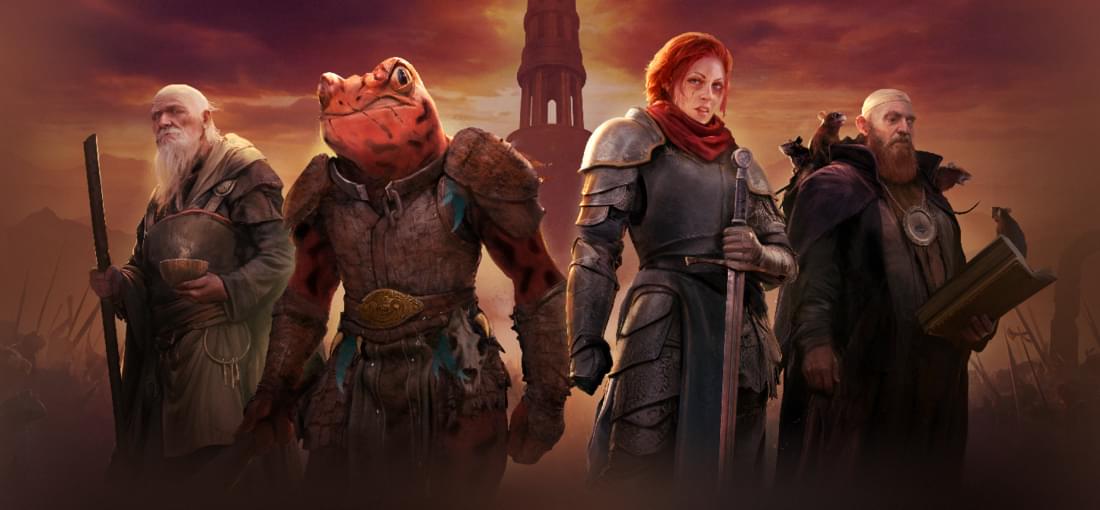
I own SoC on Steam (sorry GoG). SoC is a beautiful game. Music & sound is good, but can be more on the foreground in combat, and I don't mind if end mission cut scenes are 10x longer. Graphics are well done. I really like the style. I did turn of finisher close ups. Loading times seems a bit too long, and I cannot blame this to smart AI. The game plays much like HoMM2, not 3 imho. SoC innovates with spells based on essence points, limited troops size and grow per day. Bandit camps provide an interesting combat setup. Yet, SoC misses depth, balance and content. The world map contains many (beautiful) sites, but contain gold, a few stats or resources. No sites for sacrifices or upgrading units. The codex does not contain an entry for sites, why? Same simplicity holds for hero gear. There is no troop moral or luck. Balance is a real problem. Small troop size, and attack favoured over defence, means a unit is cripple by one or two attacks. Without a dispel spell or magic immunity, some spells destroy the balance in combat. One removes all movement, effectively eliminating a serious melee treat. Another low-cost spell kills 1 or 2 units from any troop. Very painful on Hellroars and Elder Dragons. I tried a skirmish map with only tier 1 troops. It was a cakewalk. You have troops early, can replenish quickly, easy to overflow troop limits, the AI performs poorly to 1-unit troop tactics, troops are more resilient to some spells, and a full tier 1 troop often outperforms high tier troops. Wielder skills also need some rebalancing. First turn skills are very strong. Did I mention range troops are too strong? The 1-skill counter is Eager. Basically, all your units go first and can close the gap to the enemy forces on the first turn (also the reason why many struggle with defeating Doctor Marjatta in the campaign). Overall SoC nails the artistic content. I hope they balance and extend the content and new mechanics during early access. Yet, this may take a few years.
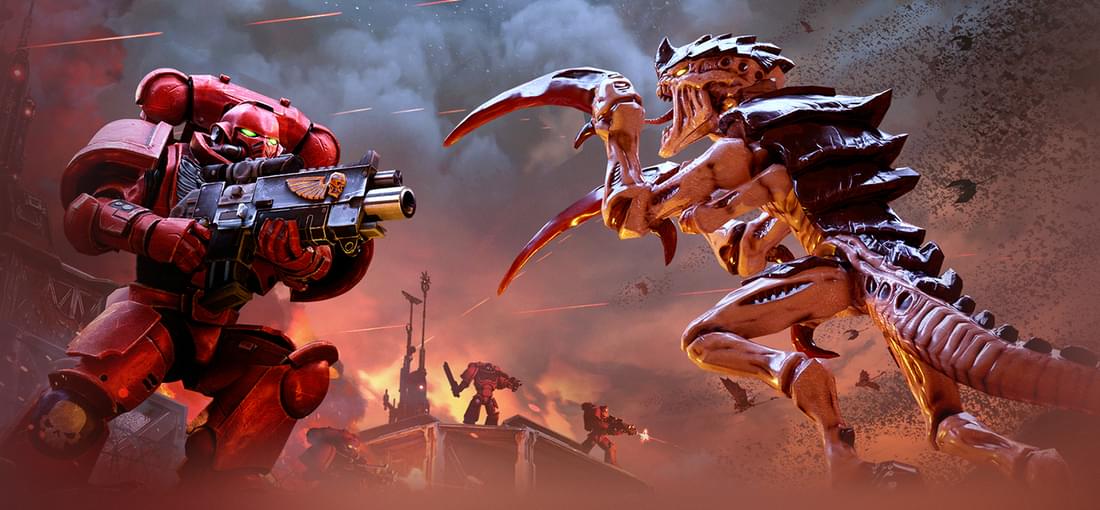
Battlesector offers an empty map, a handful of units of Blood Angels and Tyranids. It tries to fill up the emptiness with endless voice-overs (which are quite nice actually). Unfortunately it does not work: A marine telling me he is fighting the galaxy while my eyes see only a few numbers adding up on screen on an empty brown map... void are the promises of "highly tactical battles", "brutal WH40k combat", "combatants crushing enemy battle formations". The game feels like a prototype/concept without content. The mission briefing (campaign) is filled with words that require a dictionary and an IQ of 150+ (or a crazy dude) to make some sense, and seem to be put in more to distract you from the very long loading times, than to delivering a memorable story. Battlesector does not offer any strategic and tactical depth. No cities, no buildings, no map features that impact gameplay (other than block movement), no terrain (dis)advantages, shallow unit customization, etc. Nothing like Gladius. Please do yourself a favor and go for the (extremely expensive) Gladius with its DLCs (I'm totally confused how this piece of junk can be from the same creators?!). Gladius is superior in every way possible.
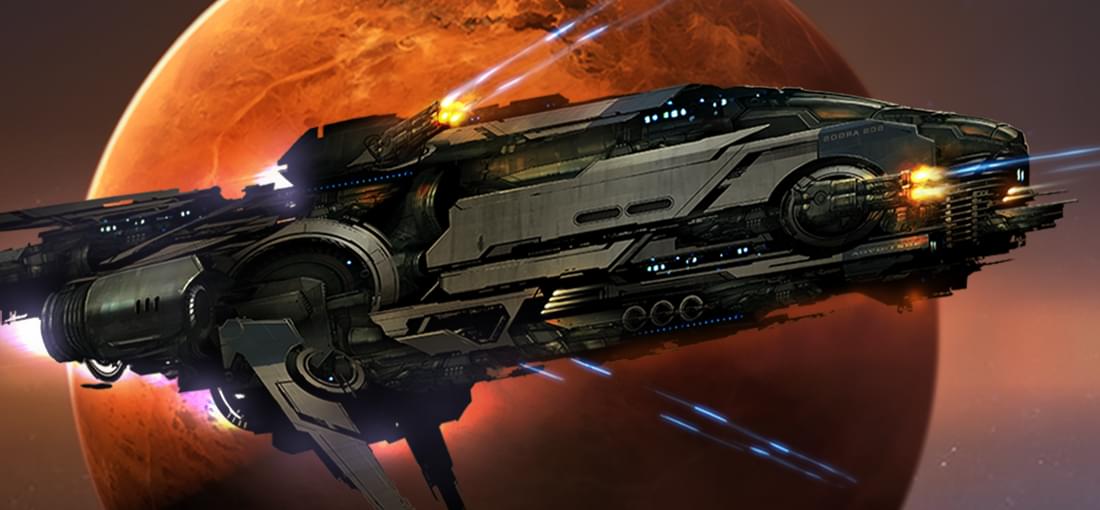
Starcom Nexus is mostly an exploration game. You travel through a quiet part of an unknown galaxy. The calmness of space penetrates all aspects of the game. There are no timed events and gameplay can border monotonous. You explore star systems by jumping via star lanes and explore each planet or object by flying over and scan. About half the planets have some kind of anomaly that you can investigate by sending a probe/awayteam. The anomaly is described by a paragraph of text, and can yield resources, research, loss of crew, or nothing. Lost crew can is replenished at the previously mentioned space station. Besides star lanes there are nexus points than allow instant travel to any other explored nexus. Resources and research is spent on building your space ship. It grows in number and variety of components. An improved space ship can travel faster and equip more weapons. You can customize your ship to your playstyle. You unlock multiple weapon systems, and all are viable. Besides opening up new modules, research adds bonuses in terms of +x% damage, +y% range and –z% energy consumption. The game would benefit a lot from more interesting scientific progression. In other words, focus more on unlocking gameplay options such as heavy laser or point defense laser as in Master of Orion. I didn’t like the jump drive. The visuals are nice, but it also ruins the relaxed pace of slowly traveling through the galaxy. In star systems you encounter aliens. Some species are friendly and offer trade or quests. Others are outright hostile. It is not difficult to stay alive in combat, but it provides some excitement and a reason to build a better ship. You can also test your cannons on asteroids and find fossils inside. The story fits well in the game. It is interesting, slow placed and can fit on one side of an A4 paper. Starcom Nexus offers enough side stories and obscure things to entertain for a couple of weeks after a long day of work.